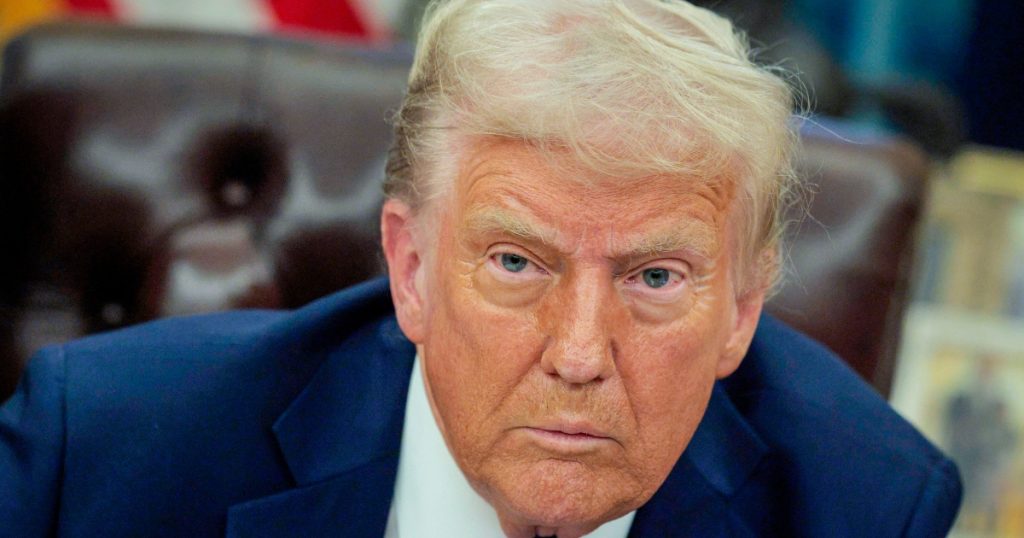Federal Appeals Court Rejects Trump Administration’s Bid to Pause Funding Freeze Order
In a significant legal development, a federal appeals court on Tuesday dismissed the Trump administration’s request to pause a lower court’s order that temporarily halted a massive freeze in federal funding. The administration, through the Justice Department, had sought to reverse a decision made by a judge in Rhode Island, which mandated the immediate restoration of frozen federal funds. The three-judge panel of the 1st U.S. Circuit Court of Appeals ruled that the defendants had failed to provide sufficient legal authority or identify any specific harm that would result from the continued implementation of the lower court’s order.
The Lower Court’s Ruling and Subsequent Controversy
Last Monday, U.S. District Judge John J. McConnell issued a temporary restraining order blocking the government from continuing to enforce a sweeping funding freeze. This order came in response to a legal challenge filed by a coalition of 22 states, which argued that the funding freeze exceeded the president’s constitutional powers. Judge McConnell’s ruling found that the states were likely to succeed on the merits of their claims, emphasizing that federal law requires the executive branch to seek congressional approval, not act unilaterally, when it believes appropriations are inconsistent with the president’s priorities.
The controversy began with a wide-ranging memo issued by the Office of Management and Budget (OMB) in early January, which directed federal agencies to pause all activities related to the disbursement of federal financial assistance and other relevant activities. This memo was aimed at implementing some of President Donald Trump’s executive orders on issues like foreign aid and diversity, equity, and inclusion programs. Although the memo was later rescinded, the underlying funding freeze remained in effect, leading to chaos and confusion across the country.
Appeals Court’s Rationale and Further Proceedings
The appeals court’s decision on Tuesday was rooted in its confidence that the district court would act swiftly to clarify any ambiguities in its order, addressing the government’s contention that Judge McConnell’s ruling was vague. The court instructed both sides to submit further arguments on the government’s request for a stay pending a full appeal by Thursday, with the administration requesting a ruling by Friday. The court’s ruling highlights the need for legal clarity and the importance of adhering to judicial orders.
Judge McConnell’s order was clear and unambiguous, according to his subsequent ruling on Monday, which directed the government to comply with his initial order. He noted that the states had presented evidence showing that some federal funds were still being frozen, in violation of the court’s directive. "The pauses in funding violate the plain text" of the order, McConnell wrote, emphasizing the need for immediate restoration of the funding.
White House Response and Political Reactions
The White House, through press secretary Karoline Leavitt, characterized the court’s actions as a continuation of the "weaponization of justice against President Trump." Leavened stated, "The White House will continue to fight these battles in court, and we expect to be vindicated." Despite this strong stance, President Trump himself took a more measured approach, telling reporters in the Oval Office that he would abide by the courts’ decisions while considering further appeals.
The legal challenges and court orders have also drawn reactions from political figures and public figures. Vice President JD Vance wrote on social media that judges are not allowed to control the executive’s legitimate power, while billionaire Elon Musk, who heads Trump’s advisory Department of Government Efficiency, complained about judges blocking the administration’s access to federal agencies. Musk suggested that some of these orders might need to be defied, a sentiment echoed by some frustrated White House staffers.
Upcoming Legal Proceedings and Broader Implications
The legal battle is far from over, as Judge McConnell is expected to hold a hearing this month on the states’ request for a preliminary injunction. This case represents a significant challenge to the Trump administration’s efforts to enact parts of its agenda and highlights the ongoing tension between executive power and judicial oversight. The outcome of this hearing could have far-reaching implications for the administration’s ability to implement its policies and the balance of power within the federal government.
Conclusion: A Test of Executive and Judicial Authority
The legal challenge to the funding freeze is a critical test of the balance of power between the executive and judicial branches of the federal government. Judge McConnell’s rulings and the appellate court’s decision underscore the importance of adhering to established legal procedures and the need for transparency and accountability in governmental actions. As the case moves forward, it will be closely watched by both legal experts and the public, as it has the potential to set important precedents for future administrations and the role of the judiciary in checking executive overreach.












